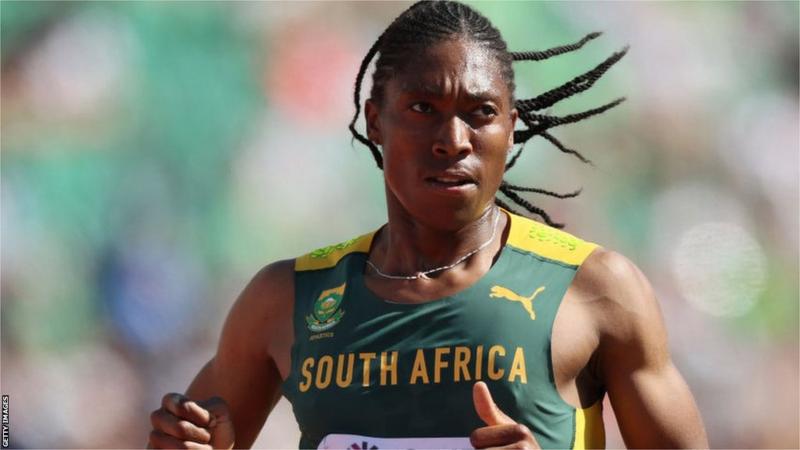The European Court of Human Rights has ruled in favour of double 800m Olympic champion Caster Semenya in a case related to testosterone levels in female athletes.
The 32-year-old South African was born with differences in sexual development (DSD) and is not allowed to compete in any track events without taking testosterone-reducing drugs.
A three-time 800m world champion and 800m and 1500m Commonwealth champion, Semenya has been in a long-running dispute with World Athletics.
Regulations requiring her to have hormone treatment were introduced by the governing body in 2018. Semenya has twice failed in legal battles to overturn the decision.
However, the case at the ECHR was not against sporting bodies or DSD rules – but specifically against the government of Switzerland for not protecting Semenya’s rights and dates back to a Swiss Supreme Court ruling three years ago.
In a lengthy judgement published on Tuesday, the ECHR found the Swiss government did not protect Semenya from being discriminated against when its Supreme Court refused to overturn a decision by the Court of Arbitration for Sport (Cas), which upheld the World Athletics rules.
Cas has previously ruled that testosterone rules for athletes like Semenya, were discriminatory – but that the discrimination was “necessary, reasonable and proportionate” to protect “the integrity of female athletics”.
While the judgement would appear to vindicate Semenya’s long-held view that she has suffered discrimination, it’s uncertain if or how the court’s decision will impact the current restrictions on DSD athletes.
World Athletics has doubled down on its position in its efforts to protect fair competition in the female category and is also keen for the Swiss courts to challenge the ECHR verdict.
There is a three-month window to lodge an appeal. In terms of competing – if that’s what she wants – that leaves Semenya in a similar position to where she was before the ECHR ruling, unless she takes medication to suppress her testosterone or World Athletics is forced to change its position on DSD athletes, and it’s not clear how that could happen.
As it stands, she still cannot compete in female track events.
Source: BBC
